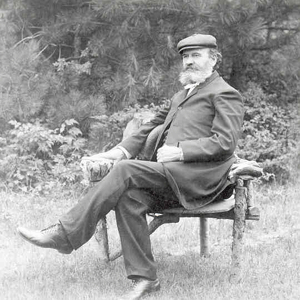A Quote by Marcus Tullius Cicero
Most happy is he who is entirely self-reliant, and who centers all his requirements in himself alone.
Quote Topics
Related Quotes
In seasons of severe trial, the Christian has nothing on earth that he can trust to, and is therefore compelled to cast himself on God alone. When no human deliverance can avail, he must simply and entirely trust himself to the providence and care of God. Happy storm that wrecks a man on such a rock as this! O blessed hurricane that drives the soul to God--and God alone!
Only to the extent that someone is living out this self transcendence of human existence, is he truly human or does he become his true self. He becomes so, not by concerning himself with his self's actualization, but by forgetting himself and giving himself, overlooking himself and focusing outward.
His heart is a desert island.... The whole scope, the whole energy of his mind surround and protect him; his depths isolate him and guard him against the truth. He flatters himself that he is entirely alone there.... Patience, dear lady. Perhaps, one day, he will discover some footprint on the sand.... What holy and happy terror, what salutary fright, once he recognizes in that pure sign of grace that his island is mysteriously inhabited!
There is a myth, sometimes widespread, that a person need only do inner work...that a man is entirely responsible for his own problems; and that to cure himself, he need only change himself....The fact is, a person is so formed by his surroundings, that his state of harmony depends entirely on his harmony with his surroundings.
In the present age, man proves his separation from his Creator by his spirit of self-sufficienc y and positive rejection of God. The present issue between God and man is one of whether man will accept God's estimate of him, abandon his hopeless self-struggle, and cast himself only on God who alone is sufficient to accomplish his needed transformation.
I think if I were to express my wish, it would be that we are more regionally self-reliant. And I don't mean people being survivalists, I mean regionally self-reliant. So that you have these individual cells. The idea of having different solutions in different areas, so that we have a very robust, durable civilization.
I think if I were to express my wish, it would be that we are more regionally self-reliant. And I dont mean people being survivalists, I mean regionally self-reliant. So that you have these individual cells. The idea of having different solutions in different areas, so that we have a very robust, durable civilization.
In separating out, say, legal and moral requirements, I tend to work with paradigms rather than strict divisions - eg, paradigmatically, legal requirements are jurisdictionally bound whereas ethical requirements are aspirationally universal; ethical requirements focus especially on intentions whereas legal requirements focus primarily on conduct; ethical requirements take priority over legal requirements; and so on.











































